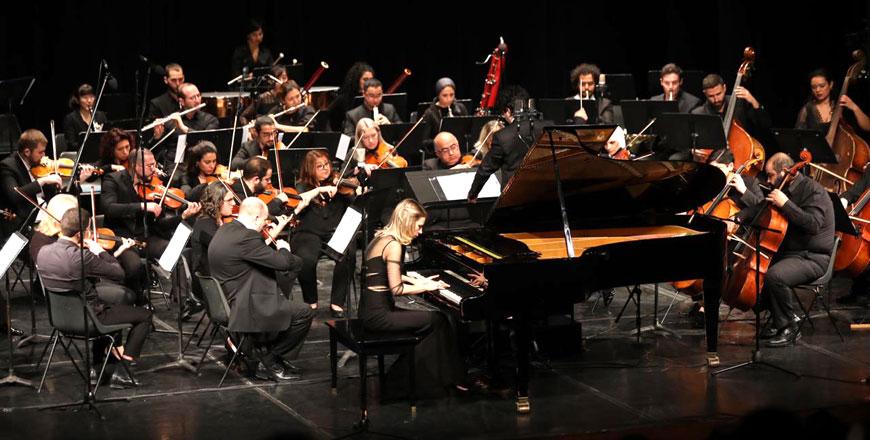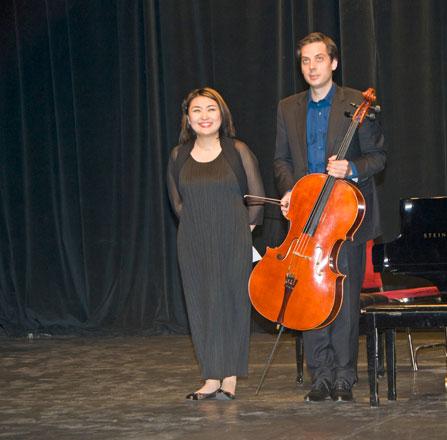You are here
Final chord: royal piano restorer sells lifetime’s collection
Aug 14,2021 - Last updated at Aug 14,2021

Royal piano restorer David Winston is selling his collection of antique pianos, including a rare Pleyel grand, made in Paris in 1925 (AFP photo by Tolga Akmen)
BIDDENDEN, United Kingdom — There’s little to distinguish the farm building in Kent, southeast England, from others nearby, except for one thing: the royal warrant over the door.
“By appointment to Her Majesty the Queen, conservators and restorers of pianos,” it reads.
Inside the building in Biddenden, near Ashford, is a treasure trove of 26 quirky and rare pianos, amassed over a lifetime by Californian David Winston.
Winston’s entire collection is now being sold off at auction, with estimates that some individual instruments could go for up to £60,000 ($83,000, 71,000 euros) each.
“I’m nearly 71 now, it’s kind of time,” Winston, who initially trained as a violin maker before specialising in pianos, told AFP.
Some of his work has included on pianos belonging to Queen Elizabeth II herself but he is cagey about the work he did on the Royal Collection’s keyboards.
And with good reason: other than saying he worked on “quite a few of their instruments”, he is mindful of the story of a woman who once spilled the beans on royal bra fittings.
She lost her warrant not long after.
What he does say is that other major commissions have included restoring the French Pleyel piano belonging to his “great hero” Frederic Chopin.
He also worked on Ludwig van Beethoven’s Broadwood piano at the Hungarian National Museum.
“When I first walked into that room, and that piano was sitting there with Beethoven’s name on it, the hair on the back of my neck just stood up,” he recalled.
Pedal power
Winston shows off his collection of pianos dating from the 18th to 20th century.
Chinese pianist Xiaowen Shang, a student at the Royal Academy of Music in London, plays a Schubert sonata to demonstrate a piano Winston built himself as an exact replica of a 19th-century Viennese instrument.
The most striking feature is that it has five pedals, while most modern pianos have three.
The extra ones produces a drum and bell sound effect or a bassoon-like rasp — perfect for the martial music fashionable at the time.
“Compared to the modern piano... this is more gentle and has a very sensitive sound,” says Shang, calling it her favourite.
She says she also enjoys playing the French Pleyel Duoclave: a piano with keyboards at either end, allowing pianists to sit face-to-face with the sound rising up between them.
“They’re really rare: they only made about 50 of them,” says Winston.
This instrument belonged to Madeleine Lioux, a renowned French concert pianist, whose husband was the Resistance hero, novelist and later culture minister Andre Malraux.
The collection does not just focus on antique period instruments but includes instruments designed for 20th-century lifestyles.
Up in the air
Winston gets out sheet music to “The Way We Were”, a 1970s ballad recorded by Barbra Streisand, and asks Shang to play it on a futuristic grand piano with a sparkly silver aluminium frame.
“This is from the 60s. It’s really stable and it sounds quite good,” he says of the piano made by now-defunct Dutch company Rippen.
“They had quite a few of them on ships and there was even one on a blimp [airship] at one time.”
Equally eye-catching is a walnut “butterfly grand” from Wurlitzer — a company better known for organs and jukeboxes.
The lid opens from the centre in two wings, creating a stereo effect.
A gorgeous piano decorated with red and gold chinoiserie from 1925 plays piano rolls, a once-popular technology that allows a piano to play music automatically.
Potential buyers could be “amassing a collection of rare instruments” or “just looking for something really unusual and rare that will just completely make a room”, Winston says.
Some might attract rock “n” roll clients, suggests Will Richards, deputy chairman of auction house Dreweatts, which is organising the online sale from September 1.
After the sale, Winston plans to spend more time at his flat in Venice, where he is a member of a rowing club, as well as focusing on photography.
Restoring pianos is becoming tough physically, he says.
“It’s getting harder on my body: bending over all the time and lifting stuff and crawling underneath pianos. Sometimes I just feel like a car mechanic.”
Related Articles
BERLIN — A few notes scribbled in his notebook are all that German composer Ludwig van Beethoven left of his Tenth Symphony before his death
AMMAN — On Saturday, 46 musicians from 11 countries came together as a chamber orchestra to perform Ludwig van Beethoven’s renowned masterpi
AMMAN — On Sunday evening, French cellist Guillaume Effler and Japanese pianist Kanae Endo performed a concert that can easily be summed up














